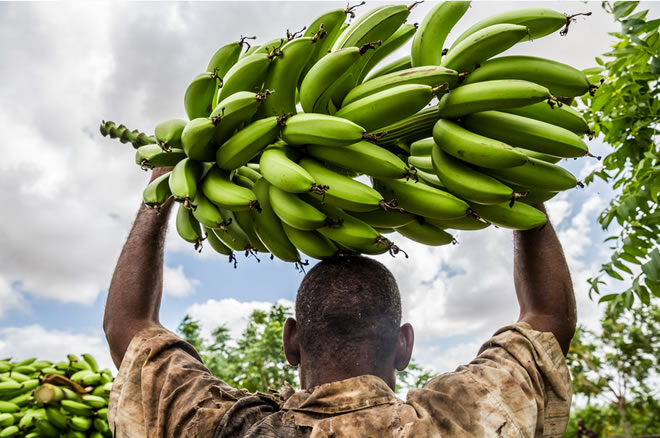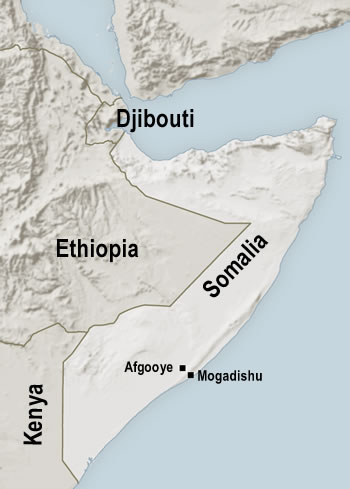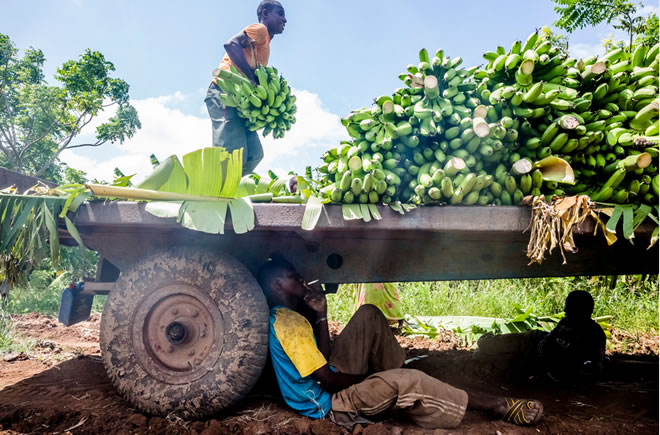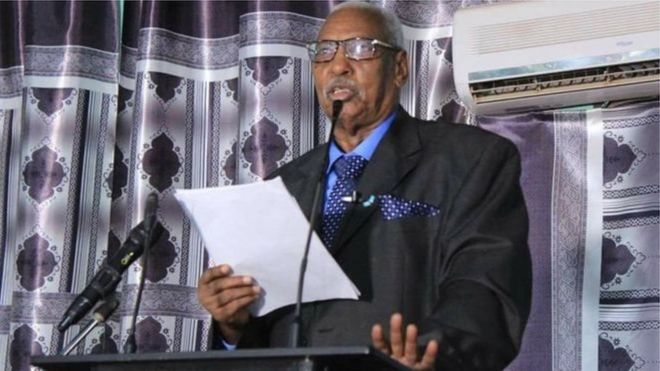Dynamics and Trends of Conflict in Greater Mandera
1. 1.2 Settlement Patterns in Mandera
Majority of the people living in the greater Mandera District (99%) are ethnic Somalis, giving the District a considerable degree of homogeneity. Among these ethnic Somalis, more than 80% are from the Samale dialect of Somalis. The Mandera Somali divide themselves traditionally into five ‘clan’ groupings, as follows: the Garre; the Murulle; the Degodia; the Corner Tribes; and the Marehan.
1.2.1 The Garre
The Garre are the majority and the most widespread clan in Mandera. They live in Mandera North, West, and Central and around Mandera town. The Garre are a diverse and complex clan consisting of two major sections, the Tuff and the Quranyo. Garre clans use three languages to communicate among themselves, including the common Somali; the Rahanwein dialect of Southern Somalia, and the ‘Garre’ language of Mandera, which is a Somalised dialect of Borana. The main Garre groupings descended from Mayle ibn Samal, and are thus equals to Irir and Saransor as sons of Samal, the original head of the Somali people. The Quranyo section of the Garre claim descent from Dirr, who are born of the Irrir Samal. Garre live in Southern Somalia, North Eastern Kenya and Southern Ethiopia. In Southern Somalia, they live in Kofur near Mogadishu and El Wak District in Gedo Province. In Ethiopia, they live in Moyale, Hudet and Woreda of Liban zone. In Kenya, the Garre inhabit Wajir North and Moyale. The Garre share ancestry with other Borana tribes in Northern Kenya including the Sakuye of Saku, Isiolo and Moyale; the Rendille of Laisamis; the Gabra of Marsabit North; and the Wa-Katwa Bajun clans of Lamu. Certain Garre families have over time taken up dominant leadership positions, both in Kenya and Ethiopia. In Rhamu (Kenya), the family of Sayid Abass Sayid Sheikh Ali3 rose to prominence both as religious and political leaders, while in El Wak, the family of Chief Adawa Eno, remains influential. In Ethiopia, the influence of the Aw Gababa family continues. According to the colonial records, the Garre clan of River Daua emigrated around the turn of the 19th Century from the Garre Kofur country near the coast of Italian Somaliland. As such, the clan speaks the Rahanwein dialect of Somali4’ .The records point out in reference to the Garre that:
‘They are keen traders, travel to Luk, Moyale, Isiolo with stock, soda, coffee and cotton goods, they dislike the Tigre looters and Abyssinians generally, like to live in settlements when they can, some families are of very light color and show Arab blood, possibly acquired in Kofur from contact with the Arabs of Mogadishu"
Over the first three decades of independent Kenya, Garre businessmen and politicians dominated the Greater Mandera District. Garre clan members have also established thriving businesses in the major towns like Nairobi, Eldoret, Mombasa, and Nakuru. Similarly, they have penetrated the local councils in these towns to secure seats as councilors.
http://www.undp.org/content/dam/kenya/docs/Amani%20Papers/AP_Volume1_n2_May2010.pdf
9 khalaf
10 moalin omar
11 Isow
12 Barre
13 Kilmaale
14 Furkesha
15 Quranyow
16 Mohamed
17 Mahe
18 Dir
i know you have the children of Furkesha in your site but that doesn't include our name Kilmaale Furkesha... i have looked all over the internet but i didn't find any info about kilmaale... so i started to think that since our people migrated from the quranyow in northern kenya down to bay region, it could have been lost in pronunciation because it was such a long time that even today we are part of a completely different tribe but we still remember our abtirsi. give me your thoughts on this if you have any info regarding this.
Bah ???
Walaalo isku bah ah
i know quranyow are garre and they live both in northern kenya and shabeelaha hoose in somalia.... we are in the Hariin clan of rahanweyn/Mirifle and settle near baidoa a places called, labaatan jarow, goof gaduud, busul, mooro waraabe... so we basically dont even claim or know much about our garre/quranyow/dir side... these days we are basically just Hariin.. however i have always heard our elders talking about that such a long time ago our people were defeated by the oromo and boran in nothern kenya and pushed towards southern somalia... and most of them moved to settle near the river shabelle whereas our group decided to settle near baidoa and joined the Hariin sub clan which we have since mixed, married with and are now fully rahanweyn and the only thing connecting us to quranyow now is our abtirsi.... sow just out of curiosity james, how does a European get into somali clan systems and now is an expert lol tell me a little about that if you don't mind plz its interesting... i say this because couple of years ago when i first came to England as teenager and was going to college i asked some of my English friends what their clans were looool which they hilariously laughed at and made so many jokes about me since then.. to me at the time, it was strange that they didn't belong to no tribes and they were lucky if they knew their great grandfather's name lol sorry about long postAccording to the Gharri’s oral traditional history and British colonial era records based on interview they had with then Gharri elders, regarding the origin of the Gharri people, the Gharri people came from red sea coast and settled at “Serar”, what is now known as arusi province of Ethiopia, They build mosques and homes made of stones. Then during the 1600th exodus of people’s movement, from the north reached the Gharri kingdom and fighting ensued because the enemies started looting the Gharri properties and herds. The Gharri were outnumbered and they were forced to immigrate toward southwest, and settled around filtu and Wachile areas.
The Gharri traditional historians state that the Gharri lived there for period of about 60 years without any disturbances. During that time they build stone houses and mosques around filtu and wachile especially around the dawa riverbanks in around fifty miles corridors from Malka Mari through Malka Dirir area.as it were a standard way of building houses. Then later on the exodous of the Borana reached there. It was believed that was the first time they came in contact with the Borana
So, during late 1600 and early 1700, they lived with the Borana. Later on, things changed, and the Gharri were outnumbered by the Boran and the Borana tried to make them subjects and demand tribute. So, the Gharri decided to move back to their previous region of Confur through Juba land.
https://en.wikipedia.org/wiki/Seraro
The "exodus
from the north" is Darod Somalis from the Sultanate of Adal out
of Ethiopia, specifically Ifat, which had been invaded by Amhara and
Oromos, which forced Garre (of whom your ancestors were in the Garre
confederation at the time) to leave their lands in Serar (Seraro in
Oromo, it's a Woreda https://en.wikipedia.org/wiki/Seraro)
and migrate to Wuchale in northern Kenya.
According to the Gharri they chose to leave on their own after pressure from the Borana grew too great, though who knows, anyways they crossed over the Jubba into Konfur. After this, one branch of the Gharri decided to go back and reclaim their lands, but presumably your ancestors decided to stay behind and join the Raxanweyn.
The bit about being originally from the Red Sea Coast is probably close to true, though probably not the coast but rather the interior near Harar.
According to the Gharri they chose to leave on their own after pressure from the Borana grew too great, though who knows, anyways they crossed over the Jubba into Konfur. After this, one branch of the Gharri decided to go back and reclaim their lands, but presumably your ancestors decided to stay behind and join the Raxanweyn.
The bit about being originally from the Red Sea Coast is probably close to true, though probably not the coast but rather the interior near Harar.





